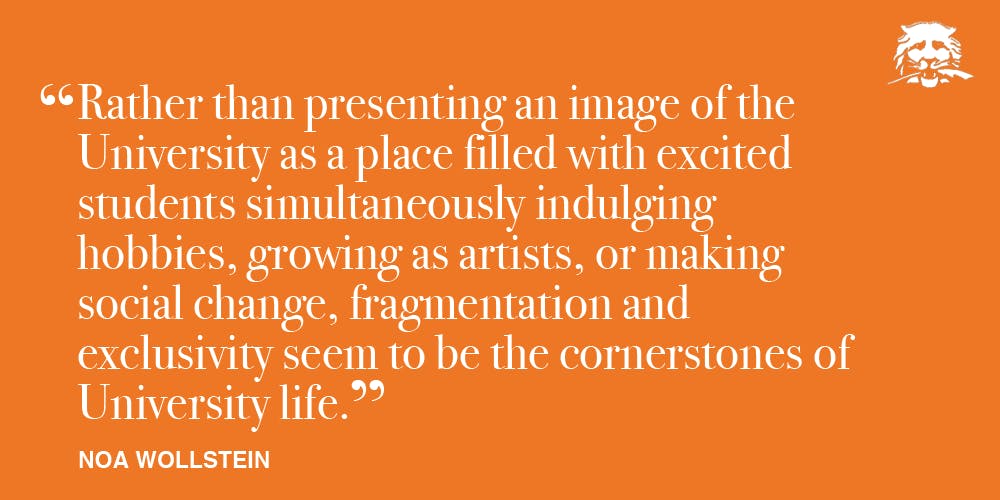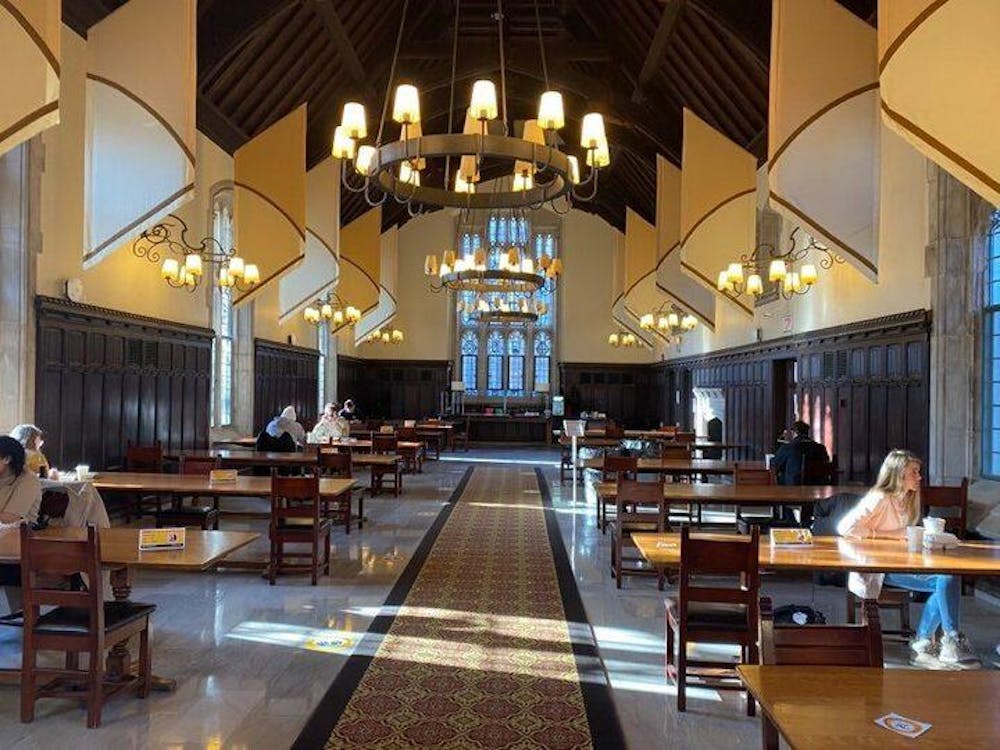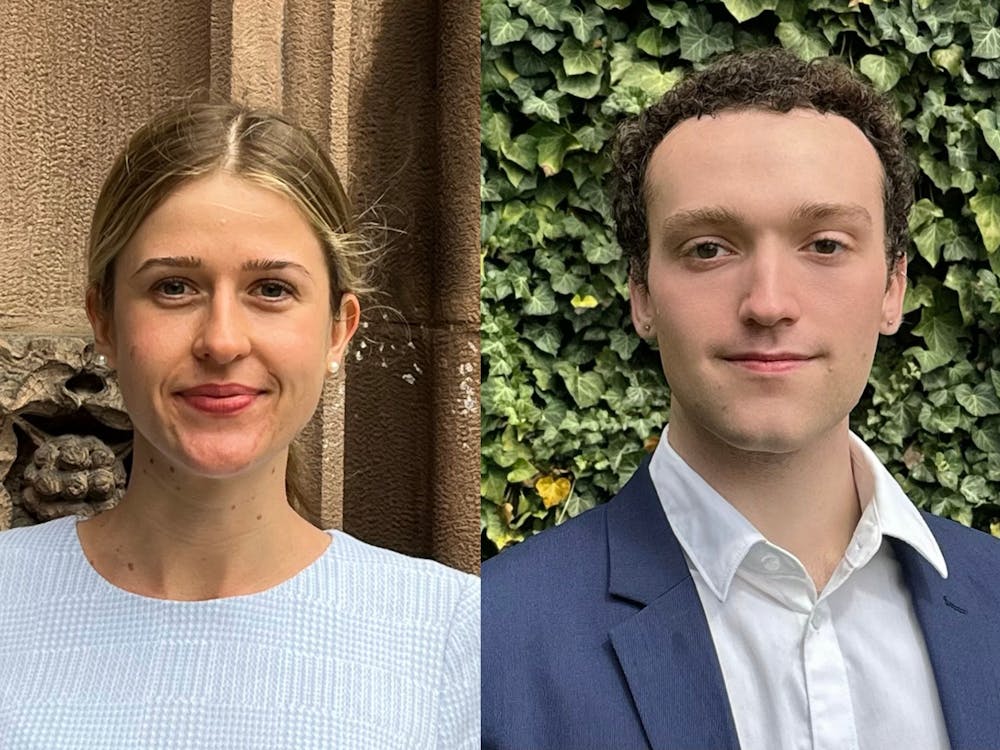I have been yelling at prefrosh for two hours. My throat, sore even when I first entered into the deafening jungle of Dillon Gymnasium, cracks and splutters.
“Are you a dancer? Are you a dancer?”
The words continuously cycle through my lips as the never-ending wave of shockingly young faces shuffle past. I shove flyers in hands, get email addresses from the enthusiastic, and try to negotiate a “yes” from the uninterested. It is clear that some of the incoming freshmen feel betrayed by the reality lurking behind the innocent words “Activities Fair.” Their eyes imploringly beg, “Why is everyone being so intense about joining every club, group, and initiative? Why is everyone screaming?”
The fierce dedication to affiliation represented in the noisy gym seems to showcase a student culture that is contingent on division. Maybe this is extrapolating meaning from the negligible. But maybe not. As former University president Shirley Tilghman noted in my conversation with her, the existence and pervasive exclusivity of eating clubs has previously been recognized as the most common reason that admitted students choose to attend other universities. Prefrosh are wary of a social scene that is so divisive that students must be discretely grouped in order to even eat. With that in mind, does the activities fair really only convey our benign enthusiasm for our extracurricular activities, or does it express an inability to escape social separation in any aspect of Princeton life?
As students already acclimated to the realities of Princeton life, we may scoff at the idea that the culture surrounding extracurricular activities is another manifestation of eating club-like social exclusivity. It is clear that opportunities for meeting fellow students are diverse, manifold, and not wholly contingent on participation in some club or group. A club takes on its rational gravity as an outlet through which to pursue a passion and meet others with common interests. Though for some an extracurricular may define their college experience, it is by no means an essential component of on-campus life.
But this is not the reality presented to the nervous prefrosh by the pandemonium of the activities fair. The endless gallery of trifolds flanked by hundreds of students in emblazoned t-shirts screeching about their undying love for their club or organization confirms the suspicion that Princeton life can only be navigated through group association. Rather than presenting an image of the University as a place filled with excited students simultaneously indulging hobbies, growing as artists, or making social change, fragmentation and exclusivity seem to be the cornerstones of University life.
Even if this idea does not completely turn a prefrosh off from committing to Princeton, it has the potential to install anxiety in their shadowy conception of college. At a time when students should be encouraged to branch out and explore new interests, incoming freshmen may think that they need to stick to what they know in order to get into a group and make friends. A rejection from a dance company or an a cappella group, which would initially be a slight disappointment, may devolve into an apparent dismissal from the Princeton social sphere. Feeling obligated to immediately plunge into extracurricular activities so as to build up a social circle may create undue stress for students struggling to adjust to a Princeton workload.
Though I criticize the propagation of an image of the University as being wholly contingent on associational culture, I am definitively part of the problem. I stood in front of the tri-fold, I wore the emblazoned t-shirt, and I literally lost my voice screaming about my love for my dance company. Given the extremely fun and rewarding nature of my own participation in extracurricular activities, and desire for others to have similarly positive experiences, I do not anticipate that my behavior will change in the future. It would nevertheless be valuable for me and the countless other equally enthusiastic students on this campus to keep in mind the lurking fears of prefrosh when hosting them and talking to them at Preview.
The University’s yield rates are consistently lower than those of other competitive universities such as Harvard and Stanford, and, accordingly, we should reflect on our conduct during the prospective students’ only visit to campus. Instead of only explaining how great the myriad groups here are, playing into our cliquish reputation, we should assure the prefrosh that it’s all right to take time to adjust to college life before plunging into extracurricular activities and groups. We should talk to them about all the friends we met at orientation, during nights out, and through mutual acquaintances. We should make the conscious effort to stress patience in the face of the potential loneliness, and emphasize that everyone finds their place eventually. We have the unique opportunity to shape not only how these incoming students approach their college experiences, but their choice of which school to attend. This is not a responsibility to be taken lightly.
Noa Wollstein is at a first-year from Plainview, N.Y. She can be reached at noaw@princeton.edu.










